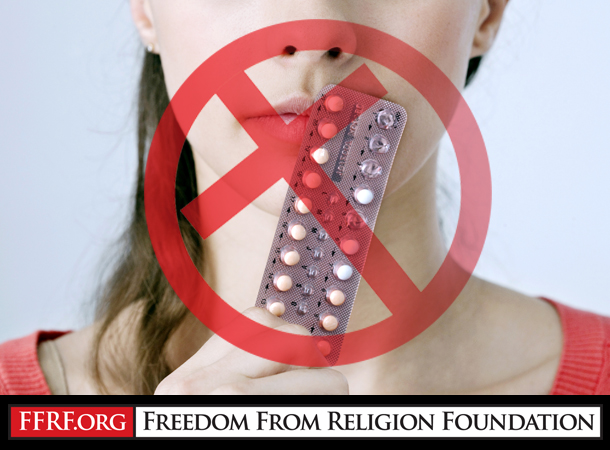
The U.S. Supreme Court in its decision today lamentably has blessed the Trump administration’s expansion of exceptions to contraceptive coverage for religious reasons.
In Trump v. Pennsylvania, and its companion case “Little Sisters,”a five-judge majority of the court ruled that the Trump administration may have a free hand in permitting employers and private universities to opt out, without notice, of the Affordable Care Act’s contraceptive mandate, which requires employers to offer preventive care, including prescription contraception for women. A district court judge ruled against the Trump administration’s move and issued a preliminary injunction against the rule coming into effect. That decision was upheld by a three-member panel of the 3rd U.S. Circuit Court of Appeals. A Catholic order of nuns, the Little Sisters of the Poor Saint Peter and Paul Home, was permitted to intervene in the case and argue that the mere act of signing an Affordable Care Act waiver violates their religious freedom and the Catholic view that birth control is a sin.
The Supreme Court decided that the Trump administration had the authority to massively enlarge the contraceptive care exceptions and that its process for doing so was not procedurally improper.
“We hold that the Departments had the authority to provide exemptions from the regulatory contraceptive requirements for employers with religious and conscientious objections. We accordingly reverse the 3rd Circuit’s judgment and remand with instructions to dissolve the nationwide preliminary injunction,” writes Justice Clarence Thomas in his majority opinion that was joined by four other justices.
The majority found that the Affordable Care Act granted broad authority to the Health Resources and Services Administration “to define preventative care and screenings and to create the religious and moral exemptions.”
Justice Elena Kagan, joined by Justice Stephen Breyer, filed a concurring opinion that leaves some hope that the expanded contraceptive exemptions may not survive further review. The case was remanded for further proceedings, which will allow the states of Pennsylvania and New Jersey to show that the new exemptions were “arbitrary and capricious.” As noted by Kagan, “That issue is now ready for resolution, unaffected by today’s decision.” One concern raised by the parties is that the Trump administration rules provide exemptions to contraceptive coverage to publicly traded companies, which will be difficult to justify.
Justice Ruth Bader Ginsburg, joined by Justice Sonia Sotomayor, dissented out of a concern about women’s rights and the intent of the Affordable Care Act to guarantee comprehensive care.
“The original administrative regulation accommodating religious objections to contraception appropriately implemented the Affordable Care Act and the Religious Freedom Restoration Act consistent with Congress’ staunch determination to afford women employees equal access to preventive services, thereby advancing public health and welfare and women’s well-being,” Ginsburg writes. “I would therefore affirm the judgment of the Court of Appeals.”
The Freedom From Religion Foundation is strongly disturbed by the majority judgment.
“This is a disheartening decision that will enable an attack on reproductive rights,” says FFRF Co-President Annie Laurie Gaylor. “Employers should not have free rein to deny women workers much-needed contraceptive care. This is discriminatory and unacceptable.”
The state/church watchdog had signed on to a brief before the court, as part of a diverse assortment of groups, contending that the Trump administration was breaching the First Amendment in allowing certain religion-based exemptions from required birth control coverage.
FFRF has also long advocated for the repeal of the Religious Freedom Restoration Act, which is what provides the underlying basis for the Supreme Court’s ruling today, and its ruling in the Hobby Lobby case. These decisions demonstrate the need for Congress to take action and to finally repeal this act.
The Freedom From Religion Foundation, the largest national association of freethinkers, has more than 32,000 members and several chapters all over the country.